From traditional Japanese dishes like kaiseki to addictive ramen noodles, Japan boasts a wide range of food options which fascinates people around the world. Washoku, a traditional Japanese dish is particularly loved as a delicious and relatively healthy diet which brings a lot of benefits to your body with low calories. But did you know there is actually a healthier one which contains only plant-based ingredients without any animal products? This is called “Shojin-Ryori”, a Buddhist special cuisine and now getting popular for not only vegetarians and vegans but for those who are interested in its sophisticated cuisine.
Here you can learn the basic concept, history, and manner of Shojin-Ryori with a list of the best Shojin-Ryori places around Tokyo!
1. What is Shojin-Ryori?
As we already mentioned above, Shojin-Ryori refers to Buddhist vegetarian cuisine. It mainly features plant-based ingredients, including vegetables, fruits, beans and grain. Since killing animals is strictly prohibited in Buddhism, Shojin-Ryori dishes generally don’t contain any animal products such as meat and fish.

In Japan, there are restaurants and locations offering Shojin-Ryori to anyone. Although its origin is a Buddhist meal, of course it’s not necessarily to be Buddhist to try this meal. Some traditional Buddhist temples even serve Shojin-Ryori dishes to attract tourists who want to try the unique diet at a historic site in an easy and casual way.
2. Brief History of Shojin-Ryori
Shojin-Ryori itself doesn’t originate from Japan. It’s believed it was first introduced to Japan from China in the 6th century along with Buddhism. It started to spread across the country around the 12th century as an ideal meal for Buddhist monks which encouraged them to accept only a moderate amount of diet and avoid unnecessary killing of animals. On the other hand, it doesn’t completely forbid killing any kind of animal, and several animals such as birds and fish were considered as exceptions and consumed just like vegetables or beans.
It was the Kamakura period (1192-1468) that the current style of Shojin-Ryori was eventually established along with the spread of Zen Buddhism, which extensively prohibited the consumption of any animal.
3. Traditional Shojin-Ryori and ingredients
Although it may vary depending on the restaurant, a traditional Shojin-Ryori course generally consists of the following dishes. It includes rice, soup, nimono (Japanese simmered vegetables), tofu, tempura (lightly-battered fried dishes), ganmo (deep-fried tofu paste cake with slices of vegetables in it), and tsukemono (Japanese pickled vegetables).
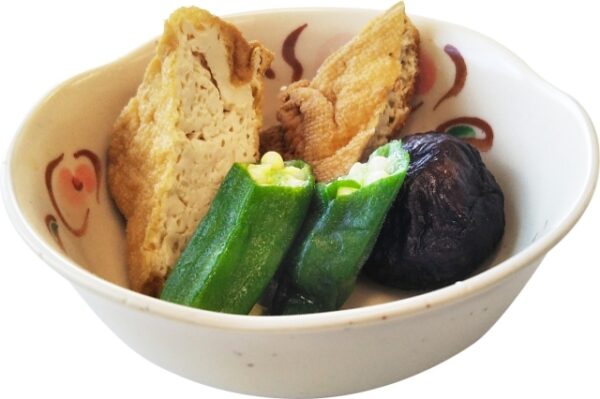
In Shojin-Ryori, all ingredients are lightly seasoned, which enables us to enjoy the simple taste and flavor of the original ingredients directly. It also brings a range of benefits such as a low-sodium diet which is essential to keep the body healthy.
4. Basic Manners to remember when you try Shojin-Ryori
- Don’t make noise while eating
It is considered rude to make noise when you eat Shojin-Ryori. It is only allowed when you eat noodles such as Ramen and Soba! Some people even put their chopsticks back to the table and wait silently until they completely finish their food in their mouth.
- Hold up the plates or bowls
In Japan, it is common to lift plates or bowls with food close up to your face when eating. It helps you finish all food without dropping some to the table. In some countries, it’s considered rude, but it’s not in Japan!
5. Best Shojin-Ryori Locations in Tokyo!
Itosho
Located in a quiet neighborhood of Azabu-juban near Roppongi, try the elegant and flavorful Shojin-Ryori. Itosho attracts visitors from all over the world. It’ll be an unforgettable experience for delicate cuisine, wonderful hospitality and atmosphere of the restaurant.
Daigo
One of the most famous Shojin-Ryori restaurants in Tokyo which has been awarded Michelin two stars for the successive 7 years. Enjoy the great Shojin-Ryori dishes featuring seasonal ingredients in a Japanese-style private room along with the exceptional services.
Takaosan Yakuoin Temple
Popular historical spot around Mt. Takao which offers a traditional Shojin-Ryori experience at a beautiful Buddhist temple.
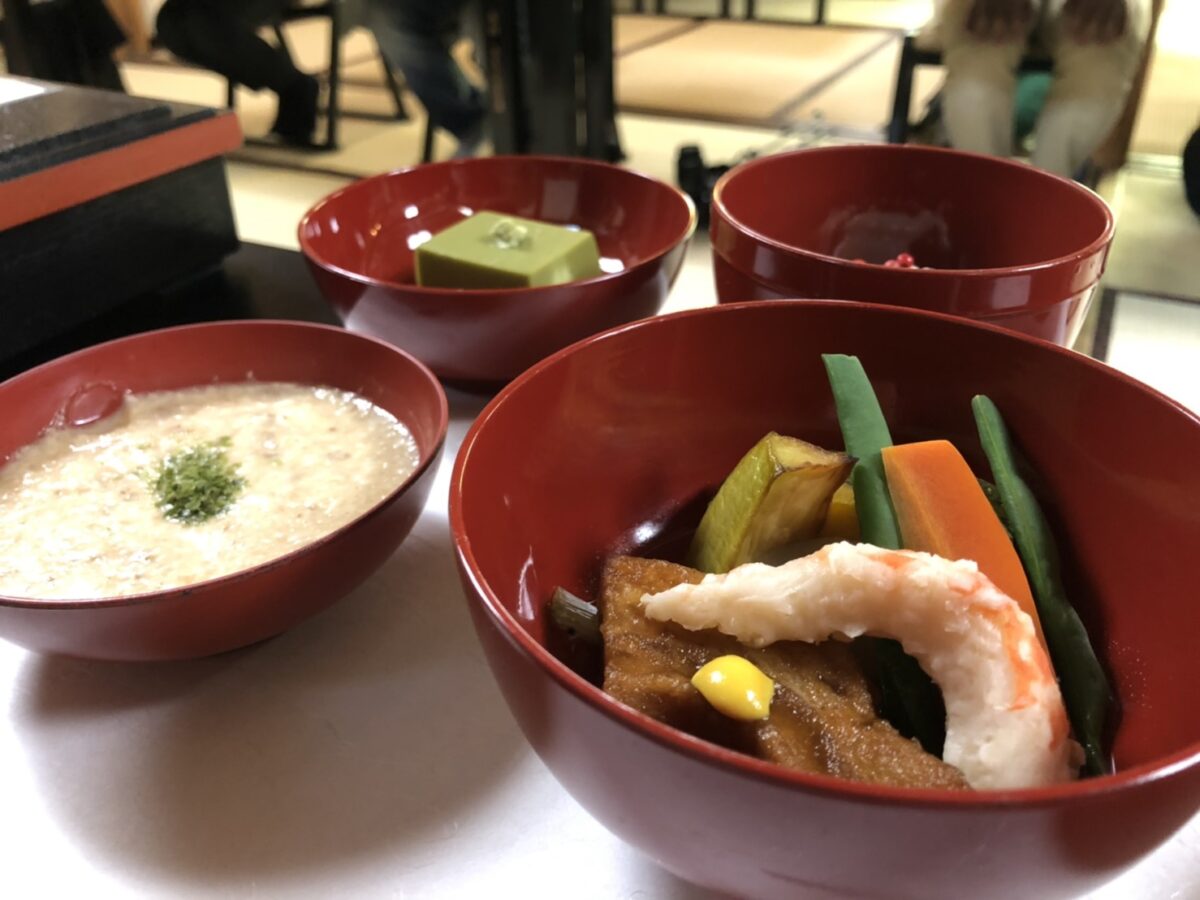
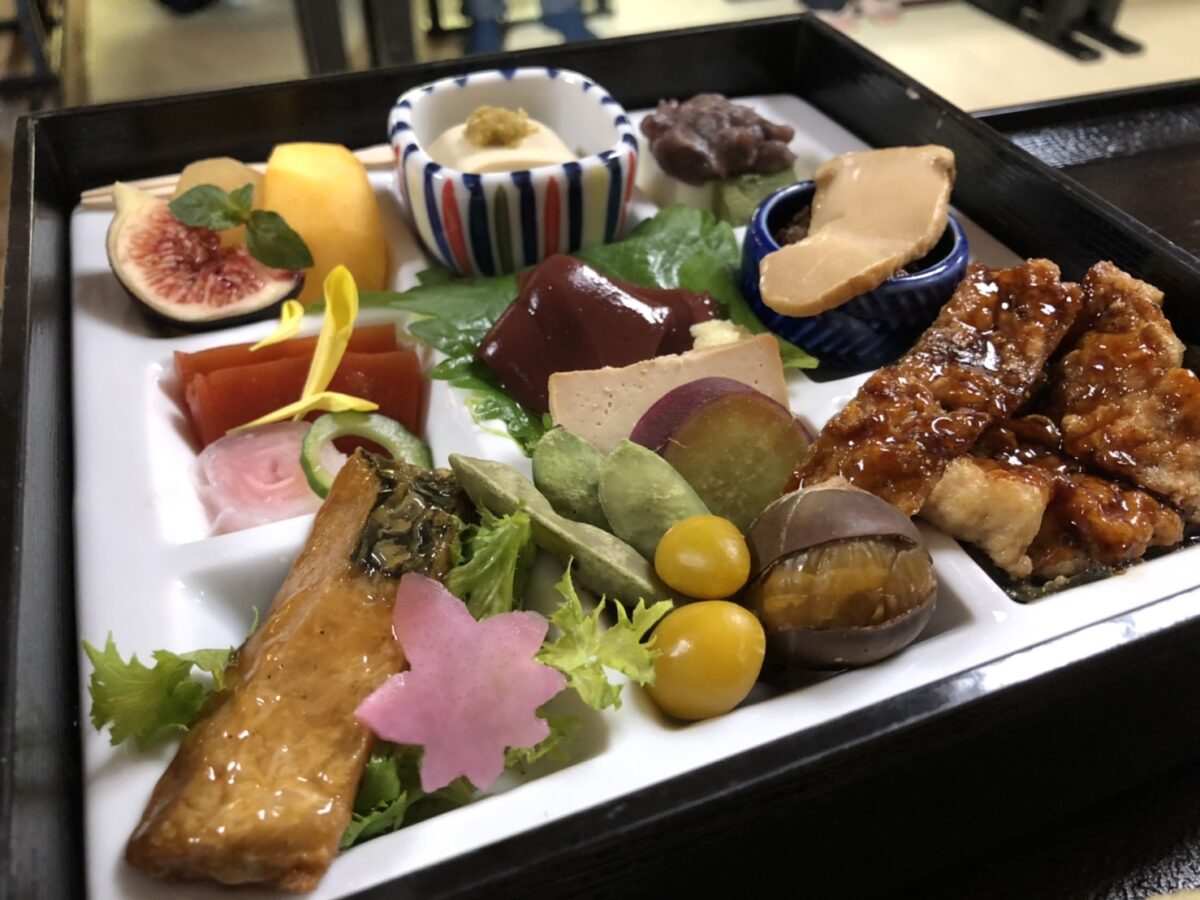
Komaki Shokudo
Cozy vegan cafe which offers a variety of healthy meals and drinks free from animal products. Most of their menu features locally sourced ingredients.
Kamakura Fushiki-an
Kamakura Fushiki-an offers a Shojin-Ryori cooking class held by a professional chef who has dedicated to the development of homemade-style Shojin-Ryori for over 30 years.
Shojin SOUGO
Fancy and high-class restaurant serving exquisite Shojin-Ryori courses in the neighborhood of Roppongi. Both vegetarian and vegan menus are available.
Izuchiku
Traditional Japanese restaurant with a history of over 50 years. Enjoy the beautifully presented Shojin-Ryori dishes with the stunning view of a traditional Japanese-style garden.

Shojin-Ryori is a healthy and simple cuisine which can be enjoyed by anyone. If you want to make a reservation at any Shojin-Ryori locations above, make sure to check their opening hours as they may be temporarily changed due to Covid-19. It is also important to inform them in advance about your specific dietary restrictions or requirements.
Follow us on Instagram, Facebook and Twitter for more travel inspiration. Or tag us to get featured!
Happy travelling!
Other articles you might like

Miho Shimizu is a Japanese freelance writer settled in Shizuoka with her husband and two rabbits. Fascinated with travelling at the age of 18, she has spent most of her long holidays exploring incredible spots around Japan. Also love to listen to music, draw, and read novels over a cup of green tea.
This post may contain some affiliate links. When you click through and make a purchase we may receive some commission, at no extra costs to you.

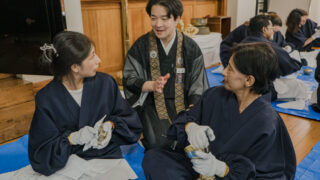
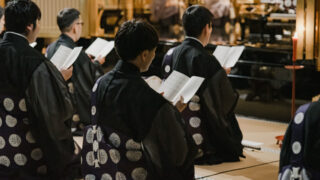



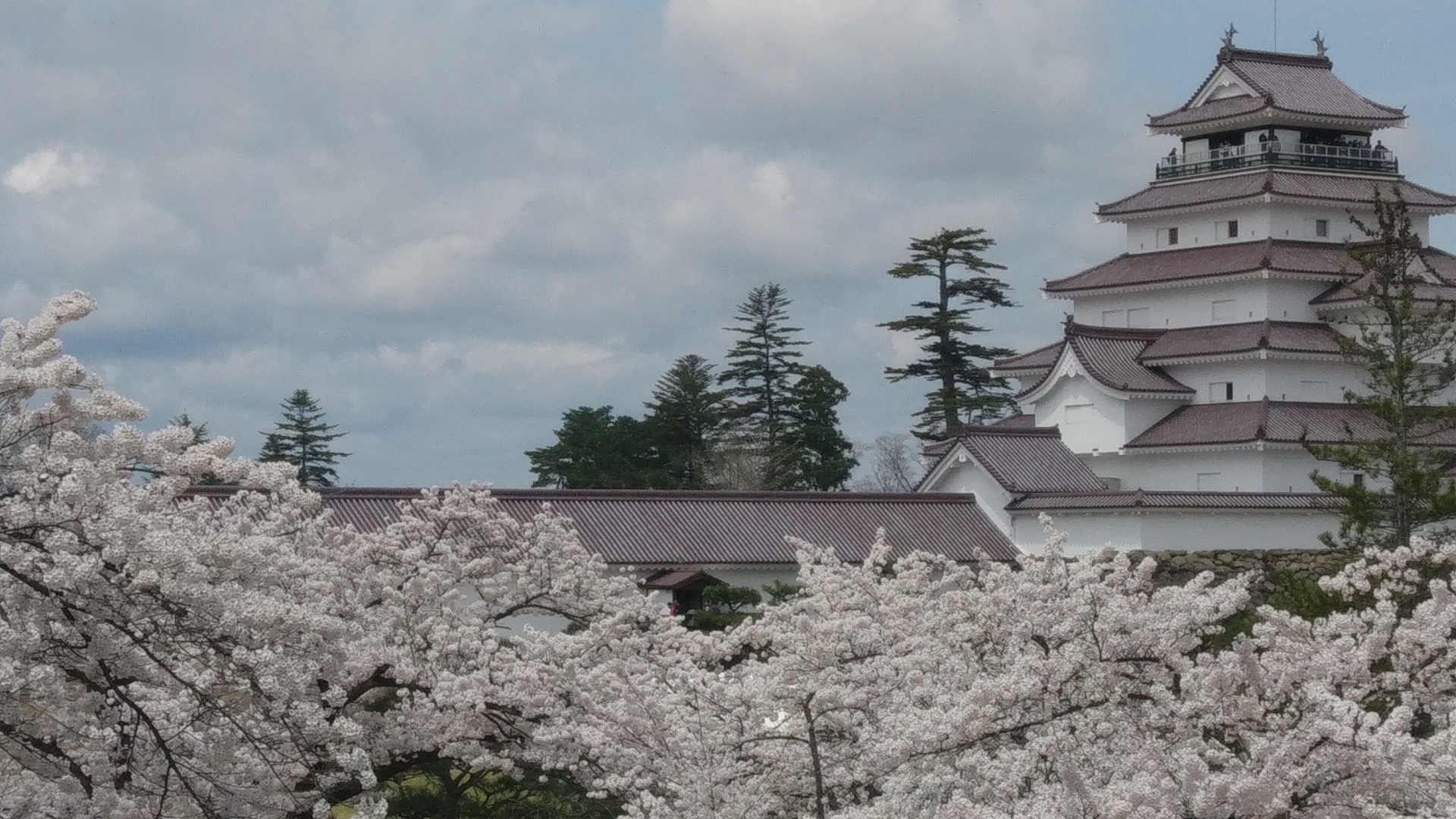
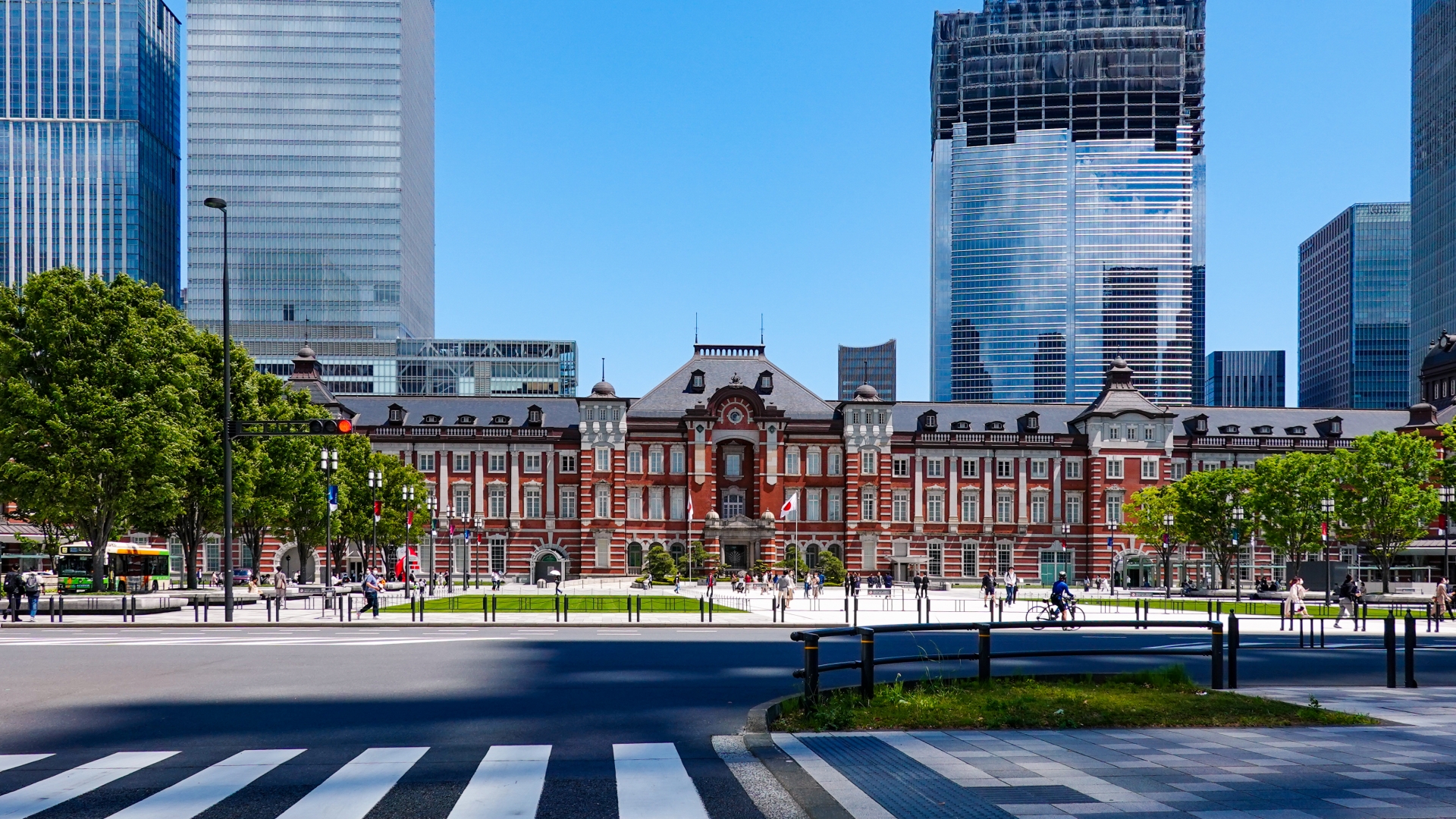
Comments
Awesome cuisine. I am in love with your blog now.